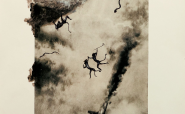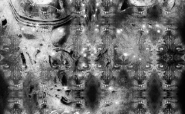| Revista Umělec 2009/2 >> Umělec in Austria | Lista de todas las ediciones | ||||||||||||
|
|||||||||||||
Umělec in AustriaRevista Umělec 2009/201.02.2009 Milena Dimitrova | Editorial | en cs de |
|||||||||||||
|
It was chance that led me to the editorship of this journal; and then, the fact that I had grown up in one particular small town in Austria, one that before many years was known only for its high church-tower and later for one Herr Schicklgruber, somehow fitted into the liking of oblique facts which is characteristic for Umelec. And so the publisher forced me to work on the task of an Austrian issue.
The idea of the Austrian issue came up in the first place because, it seems the Czechs simply cannot forget the Hapsburg monarchy, as well as the fact that commonly it is still regarded as something of a shining example of a community of nations in central Europe. And, because our publisher—himself a typical Czech (with no small tendency to martyrdom)—continues to see in contemporary Austria the old Donaumonarchie (let us recall the economic relationships moving eastward)—he brought to life a counter-conquest movement within Austria’s young and contemporary art: the Austrian edition. It is quite natural that Umelec has an interest in Austria, as somethimes it is regarded as part of the region of central-eastern Europe, sometimes excluded from the definition of this region. As well as it is the land where Metternich’s quotation, about the Balkans beginning at the Rennweg, is trotted out FROM official or corporate SIDE (such as in the catalogues of the Balkan-art exhibits), and where a view of its significance (geographically and otherwise) as an intermediary between East and West prevails. Thus, of particular interest is the article by Herwig Höller, who takes up the question of the (pre-) history of the Austrian-Balkan friendship. Quite fortunately, in the austrian edition we can also present the drawings of Zampa di Leone—the deliberately anonymous Serbian artist evidently everyone within the Belgrade scene knows, yet whose identity none is willing to reveal—they compel one to maintain an ironic distance towards the post-1989-East-West-relationships, from which things (unlike Zampa himself) become more visible. Apart from all that we were naturally also interested in the themes that are taken up within the country itself, where the marketing of public space, urban space, the art market, alternative artistic production are discussed... Bearing in mind the high degree of “discursivity” that these themes have gained for themselves, the thought forces itself toward the theory, that as soon as it comes into a situation of crisis and something is (believed to be) on the verge of disappearing, many voices towards its rationalization and further theorizing appear, or simply it is talked about a lot. Cultural policy regarding the “Creative Industries” and the public space is the subject of the articles of Monika Mokre and Elisabeth Mayerhofer. And space and time have nowadays something in common: economics. Andreas Spiegl and Gerald Raunig discuss the economics of time, creating an addition to the theme of the economisation of the public space. The impulse behind our interest in texts on the theme of time is, in turn, a result of the great extent to which currently the theme of time is discussed in the Czech Republic. “Rapidité” by Gerald Raunig provides the image of a proto-post-Fordian human subject, whipping him/herself into a passion to become faster, better, more productive, and who is no longer involved in actual production (which is now possibly re-located to China) but, let us say, who is now involved in creativity. Likewise, “Time Out Cities” by Andreas Spiegl speaks of the same contemporary urban populaces who live in a permanent Time-Out, and for whom time has become lost through this non-time, or else has been transcended. In the “time-articles” it becomes most demonstrable that the line between self-determination (over time) and economisation (of time) can be a narrow one. One matter that also has validity with regards to public space – the proof of the possibility of its appropriation is given for example by the artist Leopold Kessler which Ursula Probst mentions in one article, or the performance group Gods Entertainment with its action “Passantenbeschimpfung” (insulting the passers-by). Not to be left for the last, it have been mostly those artists active in the public space who have come (or are in) conflict with the far-right Austrian Freedom Party. So on the occasion of a rightward shift in the votes, we are also reporting of artists’ initiatives that in the past decade have reacted to national politics, such as Public Netbase or the “Volxtheaterkarawane.” In other words, Umelec wished to remain anchored in the specific themes that are currently being discussed here in Austria. And also to set out through the theme “Standpoint Austria” and the last 20 years, as also in Vienna this autumn a couple of exhibitions will be created on the theme of 1989 and the two decades of post-socialism. Of course this was not everything. During the work on this assignment we took a great deal of interest in all sorts of things in Austria, met with many individuals, and wanted to put everything into this edition, stretched the boundaries of the scope of this journal, and all in all there was space also for lot of other things. Here one could start with a further plot line—but editorials should never go on for so long as that.
01.02.2009
Artículos recomendados
|
|||||||||||||





Comentarios
Actualmente no hay comentariosAgregar nuevo comentario